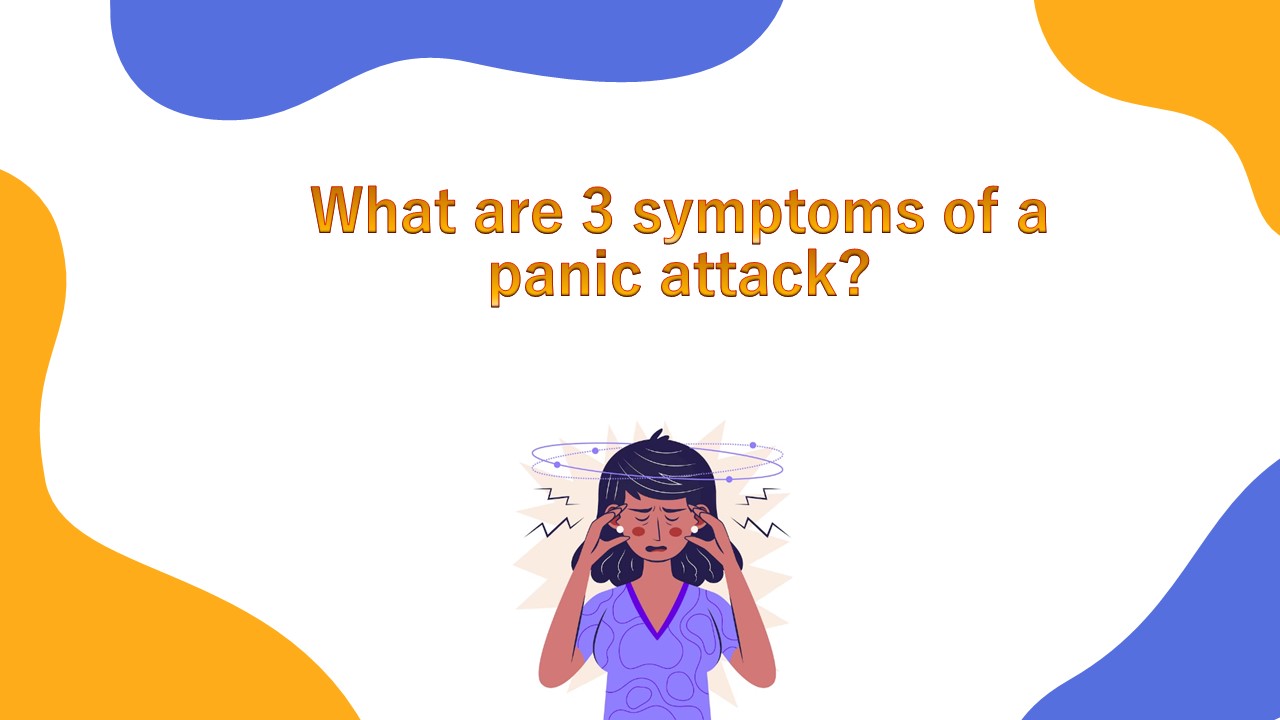What are 3 symptoms of a panic attack? (1) - PowerPoint PPT Presentation
Title:
What are 3 symptoms of a panic attack? (1)
Description:
Panic attacks are characterized by sudden terror feelings that occur without warning. These episodes can happen anytime, even while you're sleeping. Individuals encountering fits of anxiety might accept they are kicking the bucket or going off the deep end. During a panic attack, a person's fear and terror may be unrelated to what is going on around them and out of proportion to the actual situation. It's possible that you'll also think you're having a heart attack because some of the symptoms can be the same. – PowerPoint PPT presentation
Number of Views:2
Title: What are 3 symptoms of a panic attack? (1)
1
What are 3 symptoms of a panic attack?
2
Introduction
- Panic attacks are characterized by sudden
terror feelings that occur without warning. These
episodes can happen anytime, even while you're
sleeping. Individuals encountering fits of
anxiety might accept they are kicking the bucket
or going off the deep end. During a panic attack,
a person's fear and terror may be unrelated to
what is going on around them and out of
proportion to the actual situation. It's possible
that you'll also think you're having a heart
attack because some of the symptoms can be the
same. However, the majority of people
experiencing a panic attack have previously
experienced one that was sparked by a similar
event or situation. - A panic attack's chest pain typically
remains in the middle of the chest, whereas a
heart attack's pain typically moves toward the
left arm or jaw. You may also experience fear and
rapid breathing and heart rate. You become
exhausted despite the sudden appearance and
disappearance of panic attacks. Panic attacks are
characterized by unpleasant physical symptoms in
addition to feelings of fear and dread. Attacks
do not themselves fall under the category of
mental health disorders rather, they are
referred to as a collection of symptoms that are
present in conjunction with other mental
disorders.
3
If you suddenly have three or more of these
symptoms, you may be having a panic attack
A panic attack is characterized by a sudden
feeling of dread and fear. At least four
additional mental, emotional, and physical
symptoms accompany these symptoms.
- Chest pain or discomfort
- Chills or hot flashes
- Excessive sweating
- Fear of dying
- Fear of losing control or going insane
- Feeling of choking
- Feeling dizzy, unsteady, lightheaded, or faint
4
Types of Panic Attacks
Expected Panic Attacks A person experiences
anticipated attacks when they are exposed to
particular cues or panic triggers. For instance,
if a person has claustrophobia or a fear of
enclosed spaces, they might expect to have panic
attacks when they are in an elevator or other
small space. A person who is afraid of flying a
condition known as aerophobia may experience a
predictable panic attack while boarding a plane,
during takeoff, or at some point during the
flight.
5
Unexpected Panic Attacks Panic attacks that
come on suddenly and without a reason are called
unexpected panic attacks. A person can be
completely relaxed before the symptoms of a
sudden panic attack appear. There are no
conscious internal cues that accompany this kind
of panic attack, such as fearful thoughts,
intense dread and anxiety, or uncomfortable
physical sensations. External cues, such as
specific phobias or exposure to a frightening
event or situation, do not cause unexpected
attacks.
6
- Diagnosis
- A diagnosis of panic disorder is the most common
cause of panic attacks, but other mental health
conditions can also play a role. There is a
strong correlation between panic attacks and mood
and anxiety disorders like - Agoraphobia
- Bipolar disorder
- Generalized anxiety disorder (GAD)
- Major depressive disorder
- Obsessive-compulsive disorder (OCD)
- Post-traumatic stress disorder (PTSD)
7
What causes panic attacks?
It is unknown what causes panic attacks in the
first place. They can happen at any time and
without warning, or they can be sparked by
stressful or anxious situations or things.
Anxiety disorders and panic attacks may be
inherited. In other instances, a brain injury or
infection may be the cause of panic attacks.
Research on twins suggests that genetic and
environmental factors are involved. Chemical
imbalances in the brain are thought to be linked
to anxiety disorders, including panic disorders.
You may experience abnormal emotions or behaviors
when the chemicals (neurotransmitters) in your
brain that control your feelings and moods are
not properly regulated. You may develop an
anxiety disorder like panic disorder if the
imbalance is not corrected.
8
How Long Do Panic Attacks Last? Although some
of the symptoms may last longer, most panic
attacks last less than ten minutes. Although
extremely unpleasant, an isolated panic attack is
not uncommon and is not life-threatening. People
who have experienced one panic attack are more
likely to experience another than people who have
never experienced one, and panic attacks can be a
symptom of other anxiety disorders. There is a
difference between panic disorder and panic
attacks. You may have panic disorder if the
attacks come back on a regular basis and you
worry about having more of them.
9
Thanks
Do you have any questions? hhfnagpur_at_gmail.com 9
1 9890478286 www.drvinodmune.com































